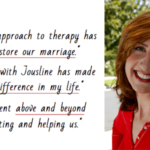How To Deal With Your Emotions in Healthy Ways
Everyone deals with emotions in different ways. To keep them from negatively impacting your life, here are some helpful, healthy tips on dealing with emotions.
Emotions inform decisions, shape relationships, and set the tone for our everyday lives. For even the most logically-minded people, emotions are inescapable. Unfortunately, this is just as true for negative emotions as it is for positive ones.
Learning how to accept and deal with negative emotions in a healthy way is one of the highest forms of self-care and relationship maintenance. Here are six ways to deal with negative emotions personally, in families, and in relationships.
Listen to Emotions
Perhaps the most common way of dealing with negative emotions is suppressing them. On the surface, this might seem like the most efficient way to power through a tough time, but research shows that bottling up negative emotions can make people more aggressive and ultimately damage themselves and relationships.
Imagine yourself in a kitchen. Your hand grazes a hot pan, so you jerk it away quickly. The pain saves your body from more severe burns. Similarly, negative emotions are the brain’s way of telling people that something hurts and needs to change.
When a person is sad, angry, or afraid, their emotions are telling them something’s wrong. Listening to these signals is the first step in dealing with negative emotions.
Release Negative Emotions
After someone burns their hand, they shake it and might even yell. It’s a natural response that physically and mentally soothes the pain at the moment before they reach for the aloe and bandages. Emotions need the same sort of release.
People release negative emotions differently. To discover what works best, listen to what your body is telling you to do. Anger and sadness make people want to scream, hit something or run away. Divert that energy by:
- Physically leaving an argument. Let the person know you need a minute to calm down.
- Exercising. If possible, go for a walk, run, or to the gym.
- Doing a hobby. Bake, knit, whittle, write, play a video game, or anything else that lets you check out for a bit.
- Indulging nervous ticks. Smack a pillow, stamp your foot or drum a pencil on the desk.
The goal of these activities isn’t to forget a negative emotion — it’s to start processing it. To do so clearly, it’s often helpful to let our brains rest or shake off feelings of immediate threat. After calming down, we can address and assess the situation.
Find Alternative Ways of Releasing and Handling Emotions
It’s not always possible to drop everything and go for a run, so a healthy emotional skill set includes alternatives. A frazzled parent with a fussy child might distract them with activity while he or she enjoys a quiet moment. After dealing with an unreasonable boss at work, employees might walk to the bathroom and splash water on their faces.
Disrupt the Feedback Loop
Many times, negative emotions create more negative emotions. Anger and fear breed sadness and anxiety. Before we know it, we’ve run the gamut of negative emotions, leaving us exhausted mentally and physically.
It takes practice, but we can disrupt this cycle by changing our frames of mind. This can be reminding ourselves that we’re not always perfect parents and that’s ok, that another person in an argument is going through something, or acknowledging that we’re tired or upset about something else. Remember that negative emotions are a part of life and no one, however perfect they seem, avoids them.
Communicate
Negative emotions feel isolating. That’s particularly true in relationships and families. Bottling up emotions leads to resentment — the poison that kills mental health and spoils relationships. Solve this with communication.
Putting on a happy face might delay confrontation, but like a burn left untreated, it’s scarring in the long run. When we communicate our emotions with loved ones, we’re acknowledging the problem. This might be uncomfortable at first and lead to vulnerable feelings, but it’s an important step in overcoming emotional hurdles.
When we need to remove ourselves from an argument with a sibling, spouse, or child, we must let them know what we’re doing and why. After cooling down, we can have conversations that might lead to resolutions. Sometimes attending family counseling can help deal with these negative emotions, and find healthy ways to communicate.
Find A Therapist
When we find ourselves constantly battling negative emotions, they prove too difficult to solve by just regulating or talking about them. Exhausted by daily battles, we find our emotional toolkits empty and ineffective. Like a burn that isn’t healing right and becoming infected, complex negative emotions require professional help.
According to an American Psychological Association survey, 48% of Americans reported that someone in their household has gone to therapy, while close to 91% say they’d recommend it to loved ones experiencing difficulties. These numbers are a testament to the diverse therapies that help individuals, couples, and families.
Personally, we might learn how to deal with emotions through new coping strategies, gaining a fresh outlook, or finding new communication skills that can be used in specific situations.
In a relationship, a marriage therapist helps us realize the root cause of constant spats. Many times, two people in an argument have completely different views on what the cause is and have trouble expressing it. Locked into a negative pattern of emotions and habits, partners need fresh, neutral insights therapists provide.
With family therapy, a household learns how to collaborate and work with each other’s negative emotions. In cases of mental illness, substance abuse, and trauma, a therapist help families navigate complex issues and acknowledge tough emotions. When everyone’s on the same page, resolutions become much more attainable.
Filling Your Emotional Toolkit
General advice and tips on dealing with negative emotions go a long way, but every person, relationship, and family is different. It takes a lot of time and hard work to maneuver through emotional hardships arising from arguments, trauma, infidelity, and other trust barriers. That’s where a therapist helps.
Jousline Savra is a licensed marriage and family therapist in Burbank, California. Throughout her nearly 22 years of experience, she’s become an expert in marriage and family therapy, especially in families with adult children. Certified in Brainspotting Psychotherapy, she helps patients deal with anxiety, trauma, and the treacherous landscape of daily negative emotions. To find out how Jousline’s comfortable, trust-based practice might help you, contact her marriage and family therapy office today.
Distribution Links +
- wicz.com
- ktvn.com
- htv10.tv
- wboc.com
- rfdtv.com
- snntv.com
- central.newschannelnebraska.com
- metro.newschannelnebraska.com
- southeast.newschannelnebraska.com
- midplains.newschannelnebraska.com
- northeast.newschannelnebraska.com
- plattevalley.newschannelnebraska.com
- panhandle.newschannelnebraska.com
- rivercountry.newschannelnebraska.com
- wrde.com
- wpgxfox28.com
- lifestyle.mykmlk.com
- wtnzfox43.com
- lifestyle.3wzfm.com
- lifestyle.bigtalkerradio.com
- lifestyle.rewindmymusic.com
- lifestyle.koltcountry.com
- lifestyle.967thewolf.net
- lifestyle.southernsportstoday.com
- lifestyle.thepodcastpark.com
- lifestyle.680thefan.com
- lifestyle.xtra1063.com
- lifestyle.953hlf.com
- lifestyle.rewind1019.com
- lifestyle.us983.com
- lifestyle.countrylegends1059.com
- lifestyle.967wshv.com
- lifestyle.1045thedan.com

